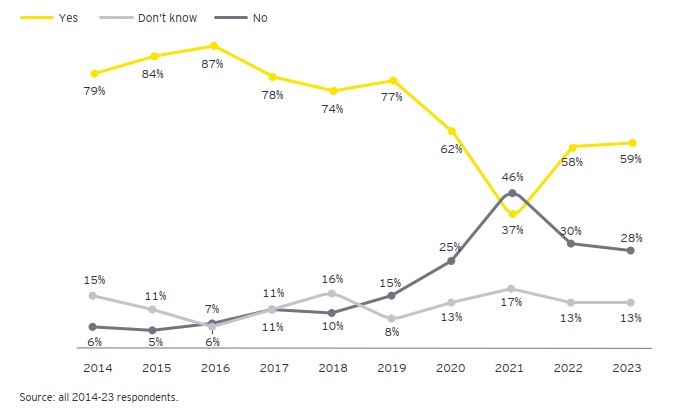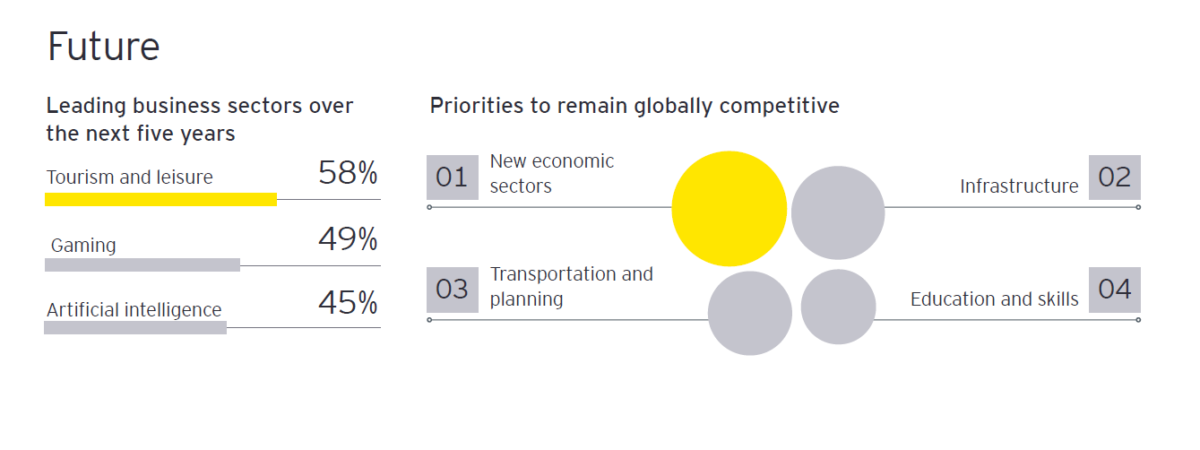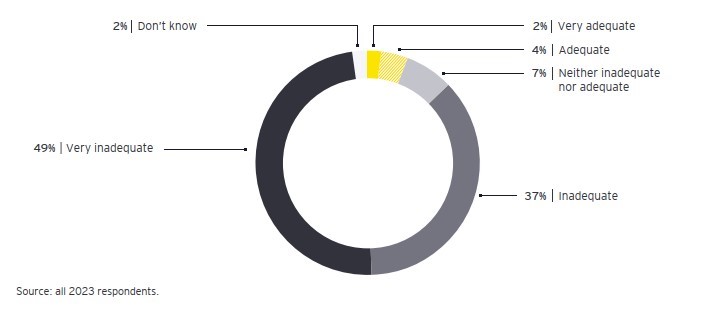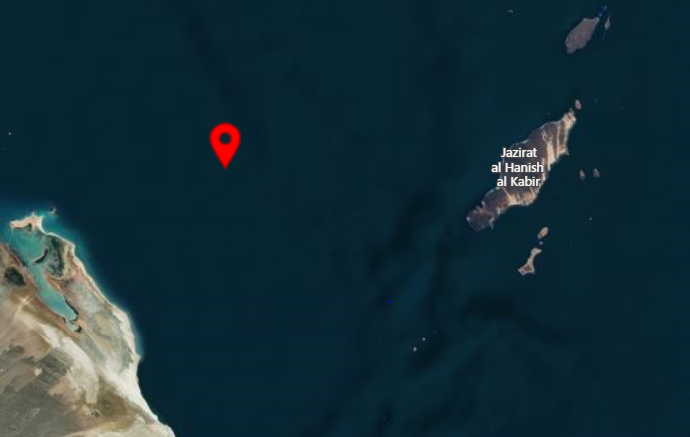Malta’s attractiveness for foreign direct investment (FDI) has gone up marginally in 2023, coming in at 59 per cent compared with 2022’s 58 per cent.
This was reported in the 19th edition of EY Malta’s attractiveness survey, an annual study conducted among existing FDI companies in Malta, which was released on Wednesday (today). Investors provided their perspectives on what makes Malta an attractive location to invest in, together with the key areas that need improvement.
As for the headline Attractiveness Index, Malta’s allure to foreign business has held steady since last year, but lags far behind pre-pandemic times.

In 2021, the figure hit an all-time low of 37 per cent, as the country grappled with getting off the Financial Action Task Force list of jurisdictions under increased monitoring, the so-called grey list. In 2020, the first year of the pandemic, Malta registered an attractiveness rating of 62 per cent, while in 2019 it registered at 77 per cent.

Corporate tax has remained Malta’s top parameter to attract FDI at 73 per cent, yet respondents also cited that given the focus on this, prospective changes to international tax policy developments are seen as the biggest risk, at 61 per cent.

Indeed, indications by Government that Malta’s corporate tax regime will be updated, while the OECD drive to implement a minimum global corporate tax of 15 per cent for multinationals earning upwards of €750 million in revenue annually is expected to impact close to 700 multinationals with a base in Malta.

The second biggest risk to Malta’s attractiveness was a shortage of skills, at 48 per cent, followed by reputational concerns, at 37 per cent. Coming in at fourth and fifth place are, unsurprisingly, competitiveness, at 35 per cent, and banking challenges, at 32 per cent.
Speaking during the presentation of the results, EY Malta EU Advisory & Attractiveness Programme Leader Simon Barberi said that finding talent to fill the local skills gap has been a “concern” for a while.
“On a positive note, companies’ ability to retain talent has remained high at 81 per cent,” he added.
He said that the increasing need for skills will enable the market to look towards different solutions, one being technology, together with the various opportunities it presents.

A proportion of 68 per cent of investors stated that they see themselves continuing to operate in Malta in the next decade.
The respondents stated that it is difficult to forecast so far into the future given the dynamic business environment that they are operating in. When compared to the pre-pandemic year of 2019, this commitment has dropped significantly (2019: 80 per cent).

There was also a drop in the number of investors planning to expand their operations in the coming year, with just 36 per cent saying that they will do so (2022: 46 per cent).

The survey adds that investors found Malta’s continuous economic growth, together with “significant increases” in population and tourism, as a “challenging scenario”, given “escalating pressures” on areas such as cost of living and labour supply.
A proportion of 88 per cent of respondents consider Malta’s planning and preparedness for population growth in terms of infrastructure development to be inadequate. This is split between 50 per cent of respondents that consider this to be very inadequate and 38 per cent that find it to be inadequate. Only six per cent are positive about this parameter and find it to be adequate.

Methodology
The survey’s results are based on the replies of 130 existing FDI companies, who were asked a series of questions in July and August 2023. The majority of respondents (51 per cent) have Europe as their key target market, while 16 per cent listed North America.
Buġibba’s Empire Cinema to be transformed into 167-bedroom hotel
St Paul Bay's local council had objected to the plans
Malta-flagged container ship targeted by missiles close to Yemen’s Mokha, British security firm says
Attacks by Iran-aligned Houthi group have had major impacts on global shipping
Employment growth set to halve to 3.2% in 2024 due to slowdown in economic activity – Central Bank
The Central Bank of Malta states that Malta’s labour force grew by 5.1% in the first nine months of 2023






